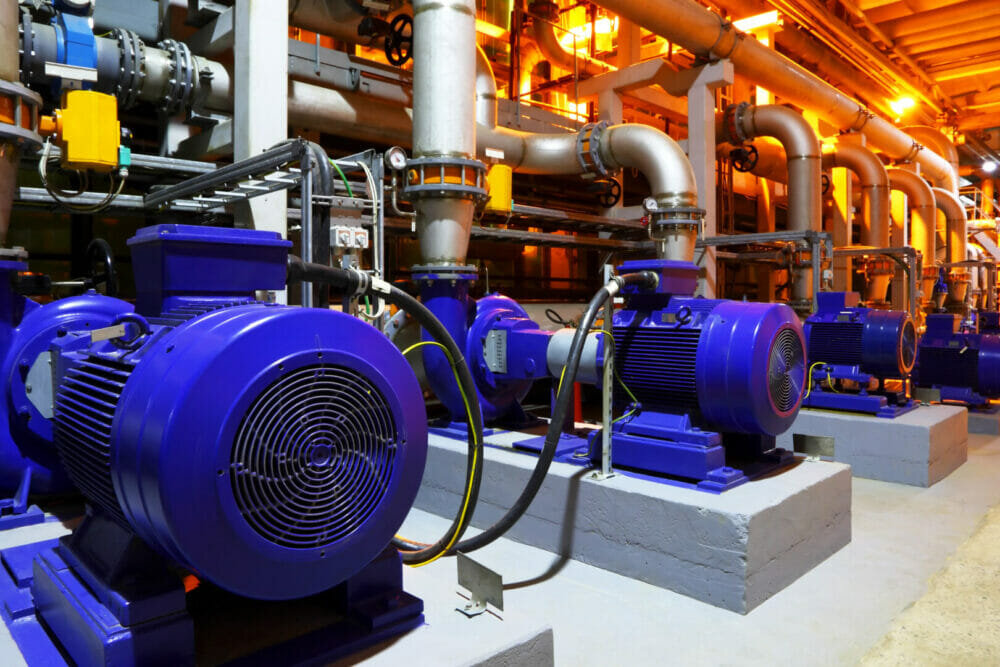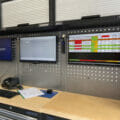Historically, industrial motor manufacturers have constituted a large share of cold-rolled steel buyers. As a result, they have been able to ensure prioritised supply lines, with good prices and fast lead times. However, the increased popularity of electric vehicles (EVs) has led to increased demand for cold-rolled steel in the automotive industry, causing a drastic shift in market dynamics. Here Neil Ballinger, head of EMEA at automation parts supplier EU Automation, explores the consequences of these changes for the manufacturing industry.
Electrical steel is an iron alloy designed to have specific magnetic properties. It is essential to create the electromagnetic field that causes the rotor in electric motors to turn, and is traditionally manufactured in cold-rolled strips that are assembled to create the laminated core of transformers, stators and rotors.
Cold-rolled steel is essential to the performance and efficiency of industrial motors, but constitutes a relatively small percentage of the overall steel demand and is notoriously capital-intensive to produce. As a result, it is difficult to increase or speed up its production to satisfy sudden spikes in demand.
Traditionally, this has not been a problem for industrial motor manufacturers, which have always represented a large percentage of cold-rolled steel buyers. However, the popularity of EVs is about to change this dynamic.
Rising prices
According to the Federal Reserve Bank, which tracks the global price of cold-rolled steel, the price of this raw material is now more than 400 per cent what it used to be in January 2016. Experts estimate that this is due to increased demand from the automotive industry to produce EVs, which has weakened the bargaining power of industrial motor manufacturers.
The correlation between the increased price of electrical steel and the rise of EVs seems to be confirmed by a skyrocketing demand for lithium-ion batteries in the same period, which highlights how the two phenomena are running in parallel.
The consequences are already being felt — the average final price of electric motors is 35 to 40 per cent higher than in January 2020, and manufacturers are reporting longer lead times.
Focus on maintenance
In this situation, it becomes even more critical for manufacturers to take care of their existing motors. Motors are among the most reliable pieces of industrial equipment and with proper care they can easily last for decades. However, it’s crucial to establish a proactive maintenance routine.
For example, bearing failures, which account for nearly two-thirds of all motor failures, can be effectively prevented with vibration analysis and thermal scanning. This will allow assets managers to detect and replace failed bearings before they cause irreparable damage. Vibration analysis can also detect changes in machinery caused by imbalance, misalignment or mechanical looseness.
Manufacturers should also try and mitigate factors that contribute to overheating, such as incorrect or intermittent power supply, excessive workload, poor ventilation, broken enclosures, high ambient temperatures and overload.
It’s also important to ensure that motors’ voltage is kept as close to the nameplate value as possible — the US Department of Energy recommends a maximum deviation of five per cent. Purchasing motors that are the right size for the application they power will help maintain their efficiency and increase their lifespan.
Finally, purchasing reconditioned or obsolete motors can also be a good solution when long lead times for new models could extend downtime and compromise business’ bottom lines. In this case, manufacturers should make sure to buy from a trustworthy supplier of quality automation components.
The prices and lead times of cold-rolled steel are impacting the availability of core industrial equipment such as electric motors, but with an appropriate maintenance strategy and the help of a reliable supplier, manufacturers can hold on to their trusted machines for years to come.
To receive a quick, hassle-free quote on a vast range of electric motors from all major brands, visit www.euautomation.com or call at +44 1785 303300.








